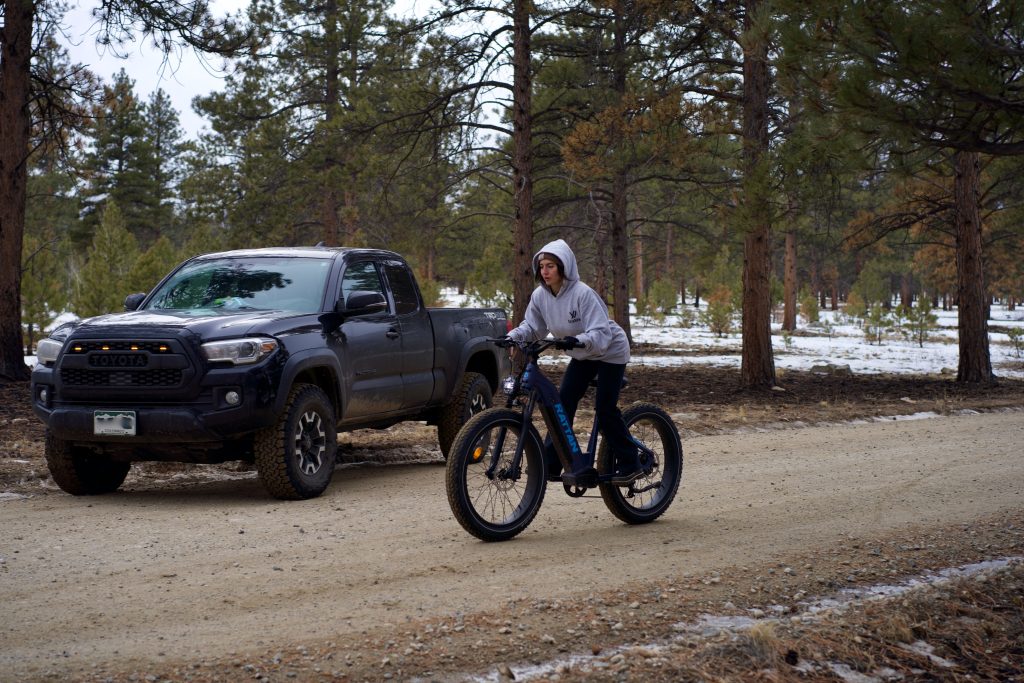
I grew up riding BMX bikes and, later in my career, worked in the mountain bike space. I admit, I harbored an unfounded bias against e-bikes, especially on the trail.
Maybe it was misplaced disdain for the early adopters who effortlessly — joyously, even — cruised up climbs on their fancy battery-powered bicycles as the rest of us suffered the old-fashioned way. Grinding it out in low gear, calves screaming, wondering why we chose to do this to ourselves on a Saturday.
However, as someone who, at this point in my life, has little to no desire to put my calves through such punishment, I decided to dip my toes into the world of progress. So, I haphazardly rigged Rattan’s trail-ready e-bike, the Sequoia, in the bed of my Tacoma and I set out to test out my “maybe e-bikes aren’t so lame after all” theory. I figured that one may even be a useful addition to overlanding trips. Read on to discover what happened as I took to the trails to test my theory.
Table Of Contents
Pros & Cons
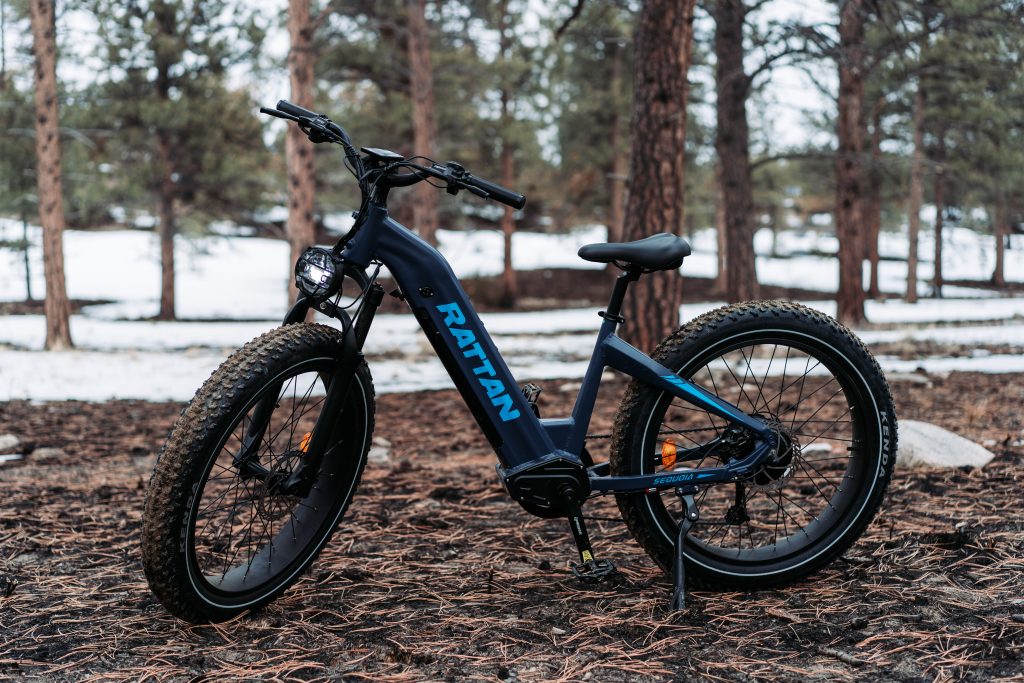
The Sequoia is a fat tire e-bike that appears to be geared towards riding trails and long distances. This is why I chose it; to navigate the same trails as my 2019 Tacoma TRD Off-Road. While Rattan has a full lineup, the Sequoia is the most burly of the bunch. The fat tires screamed “trail-ready” to me, so I decided to try this model.
Rattan has been around for quite some time. The technology and components they use are up to spec and compete with high-end competitors, yet their e-bikes are priced aggressively low comparatively. As this was my first one, a price tag of around $3,000 felt like a good entry point when comparable models from other brands can run upwards of $5k and even $10k.
Pros
- It’s impressively fast and borderline effortless to get up to speed.
- Enough battery to last several trail rides/days.
- Durable tires that soak up terrain.
- The front suspension offers great compression damping and smooth, gentle rebound.
- It’s well-built and can take a beating.
Cons
- Customer service can be difficult to reach.
- It’s heavy. 77 lbs. plus 11 lbs. per battery (you carry up to two batteries).
- The large frame can make it slightly cumbersome to maneuver in tight spaces.
- It’s technically not waterproof due to the electronic connections not being sealed (although I’ve had no issues riding in light rain and snow).
Features & Specs
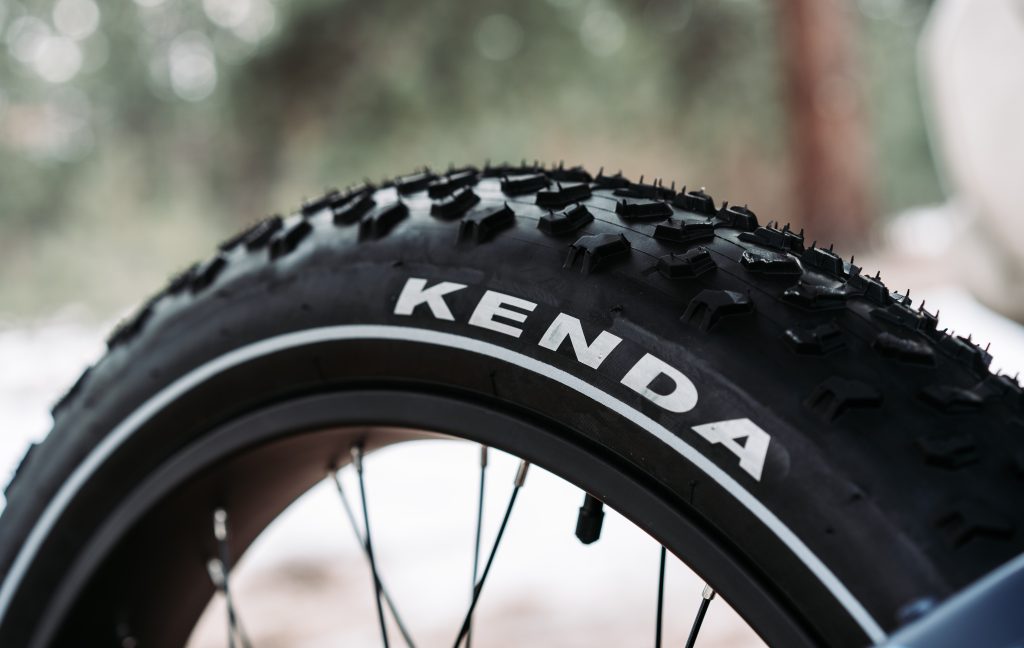
The Sequoia comes stacked with high-end technology from some of the best component manufacturers in the cycling industry.
Features
- 26” x 4.0” integrated tires by Kenda.
- Fastace hydraulic levers and front and rear hydraulic disk brakes that stop on a dime, even at 25mph.
- A Shimano 8-speed gear cassette.
- Samsung lithium-ion battery cell (20 amp hour | 960-watt hour | 48-volt)
- A 750-watt (sustained), 1200-peak-watt Shengyi hub drive motor.
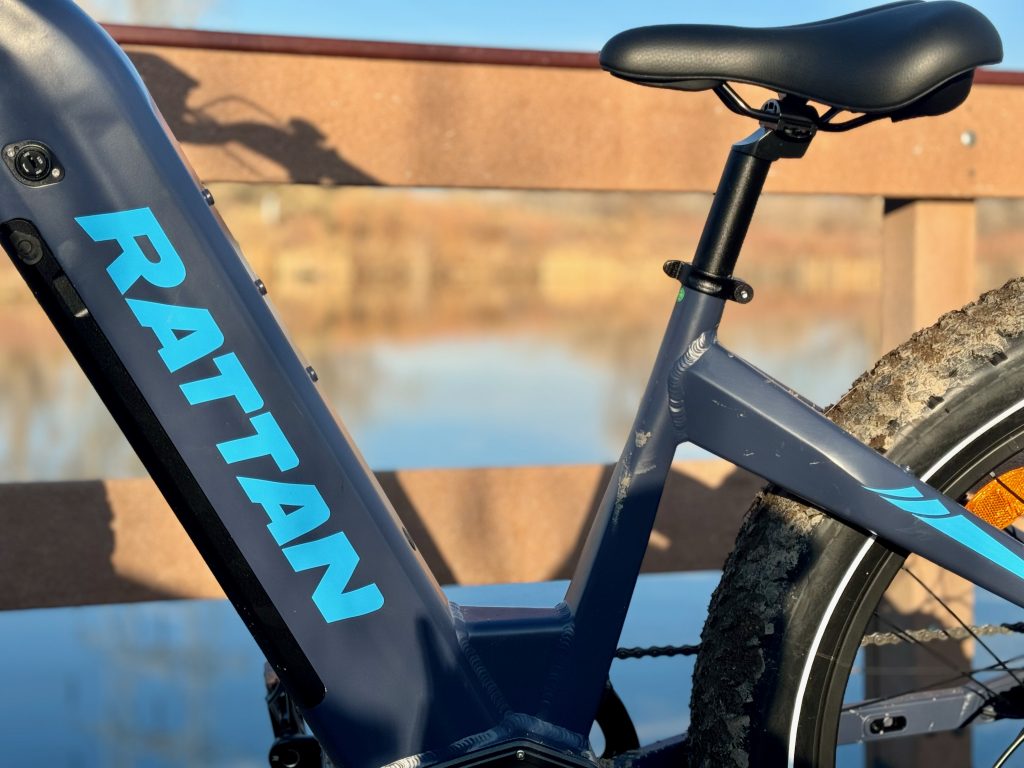
The full step-through frame is also surprisingly convenient. As a newbie, I didn’t understand the benefit of this design until trying it for myself. It makes balancing the 77-pound e-bike much easier, especially for smaller people.
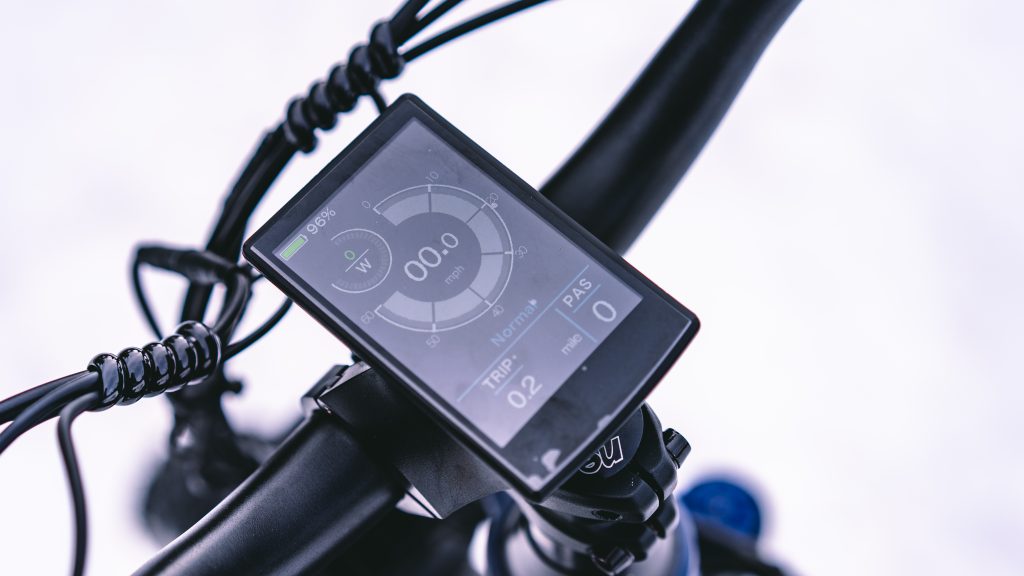
The air-sprung front suspension has a decent amount of travel. It performed well riding over lots of small chatter and when I chaotically thrashed over larger rocks and obstacles. I’ve yet to bottom it out — however, a larger person may have a different experience. There’s a dial to increase or decrease compression damping located on the right stanchion of the fork.
Despite the bike being a hardtail, an adjustable seat post is a useful addition. You can also swap it out for a suspension seat post if you’d like.
I was able to lower the seat low enough to comfortably ride this bike standing at 5’2”. Technically, the frame is made for someone much larger than myself. Rattan states that it’s ideal for people 5’6”-6’4” and has a payload capacity of 450 lbs. However, I know most people I camp with are larger than myself and I appreciate the versatility of the larger frame. This way, when the Sequoia is parked at camp, just about anyone can hop on it and go for a cruise.
The LCD color display is large and easy to read. It also pairs with an app for mobile connectivity via Bluetooth. You can also carry a second battery, however, I opted not to as I didn’t want to add another 11 lbs. to the bike. Plus, I wasn’t going far enough to demand it. A maximum range of over 100 miles with the second battery is impressive though.
Overall, this thing is solid and the price point is awesome for what you get. The welds on the frame look amazing and assembly was relatively painless.
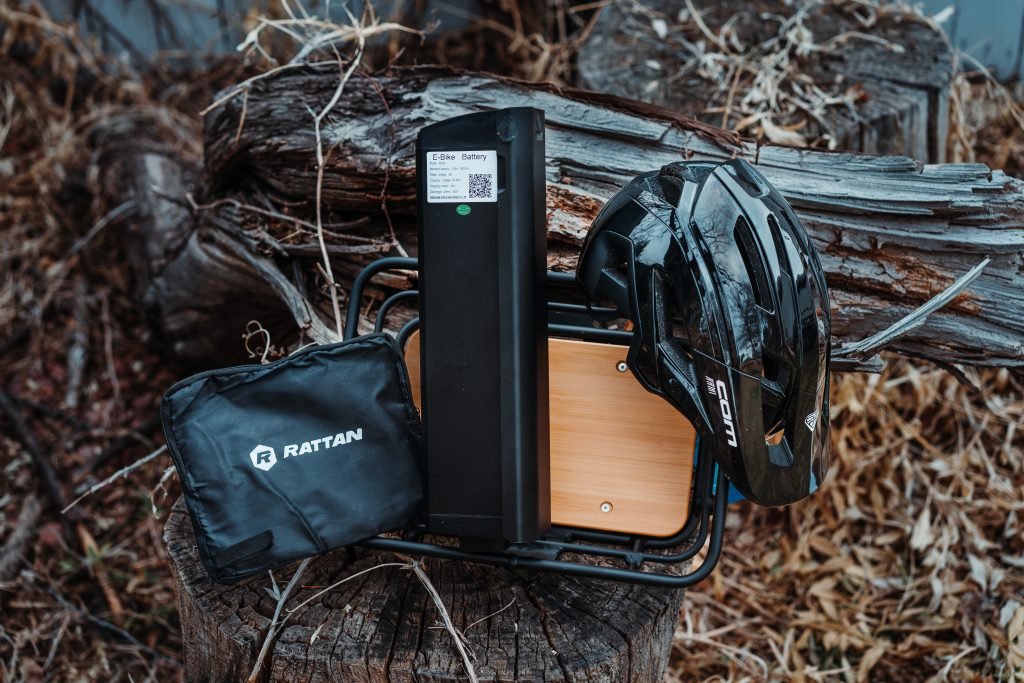
The bike did come with a steel basket that (somehow) attaches to the front. I say somehow because neither myself nor my husband could figure out how to install it around the braking cables and the headlight.
The full package includes an extra (second) battery, a battery charger, and a helmet.
Find It Online
- Rattan Sequoia E-Bike: Check Price
Worth The Added Weight
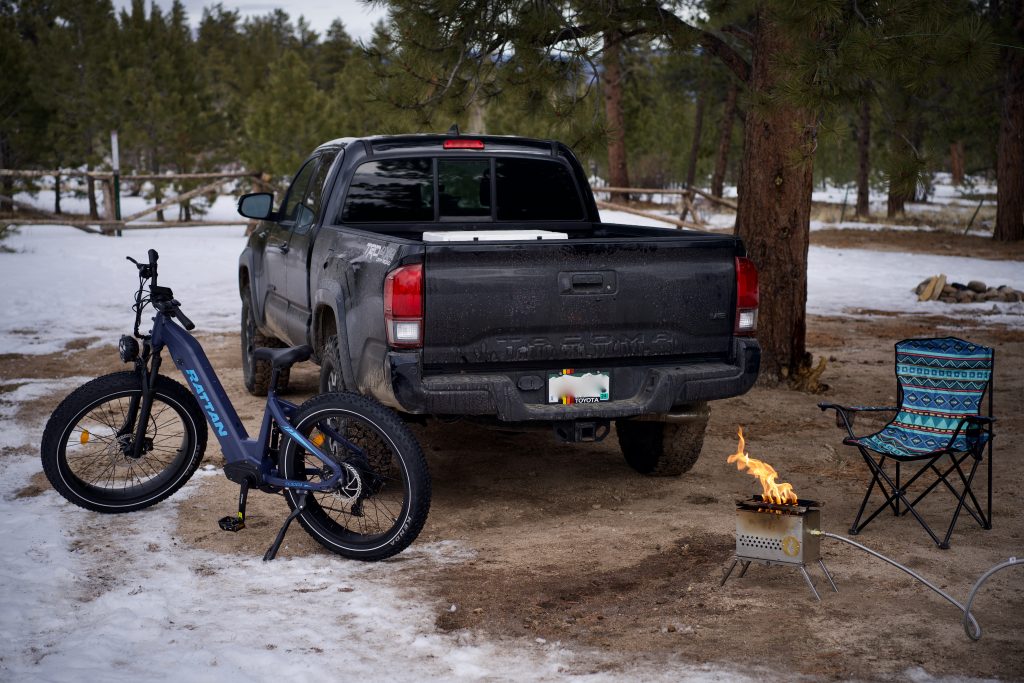
Now that you have an idea of what I was working with, let’s get to the good stuff. I was curious to see how a fat tire e-bike performs off-road on the trails we encounter overlanding. I also thought it’d be a fun way to explore our campsites.
Everyone knows the feeling. When you’re sleeping in your vehicle, whether the bed of your truck or in an RTT, you are kind of stuck at camp once it’s all set up. Seriously, this is my least favorite thing about overlanding and car camping. Nobody wants to fold up the beds, roll in the awnings, and tear down the entire camp because you can’t get anywhere except by foot or by vehicle — and you can only go so far on foot.
If you’re lucky, you have an extra vehicle in the convoy that isn’t used as sleeping quarters and everyone can pile in to explore. However, if you travel solo, you’re limited to staying within hiking distance of the campsite. Or, having to perform the aforementioned circus that is packing and pitching camp repeatedly. If you’ve done this once or twice, you know how quickly your weekend trip can start to feel more like work than play.
With this in mind, packing along the Sequoia was worth the added weight. Unlike some dirt bikes and most quads and side-by-sides, the Sequoia e-bike is small enough not to need a trailer. It’s also no hassle to load up and even fits in the bed of most Tacoma’s with cab-height toppers.
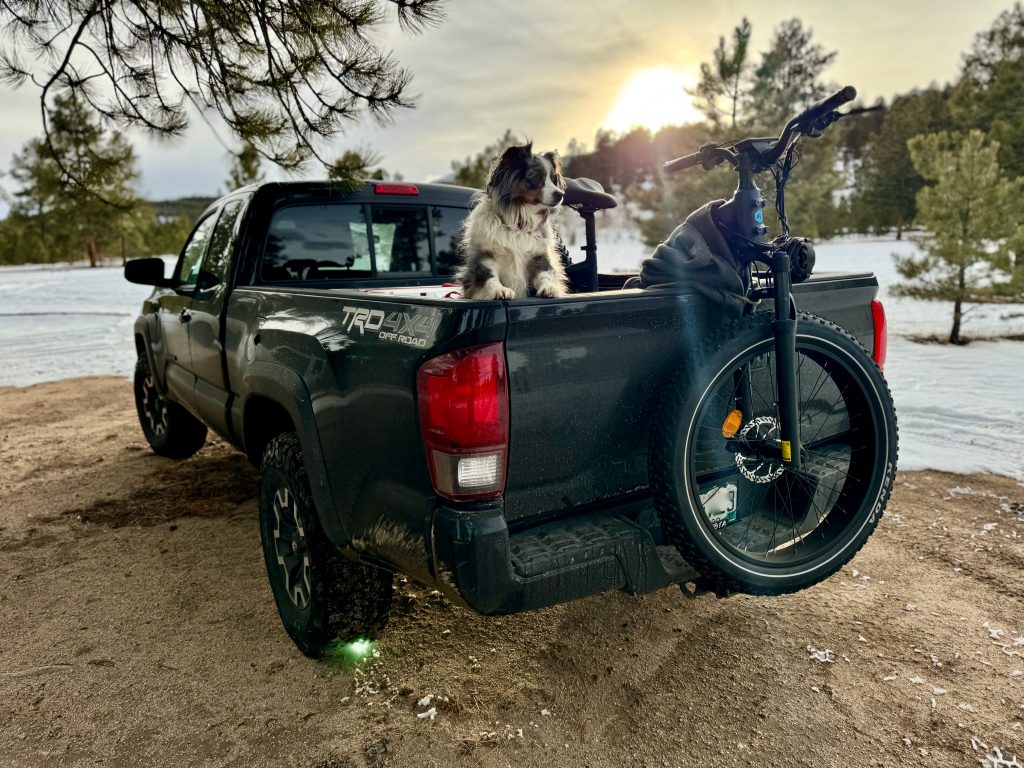
On our first trip with the bike in the bed of the Tacoma, I traveled over 3 hours on the highway, dirt roads, and rough off-road trails in the snow. The bike stayed upright, locked in place with the front wheel over the tailgate just as we’d intended.
That said, I’ll absolutely be purchasing a nice thick tailgate pad for future trips and you should too. Even with a heavy blanket wrapped around it, there’s the slightest dent in the plastic on the top of my tailgate where the bike’s frame rested. After all, any e-bike will be much heavier than a typical mountain bike.
The dent is hardly noticeable but could’ve been much worse. The bike, on the other hand, was perfectly fine. That speaks to its quality; the frame is built solid.
Ride Quality
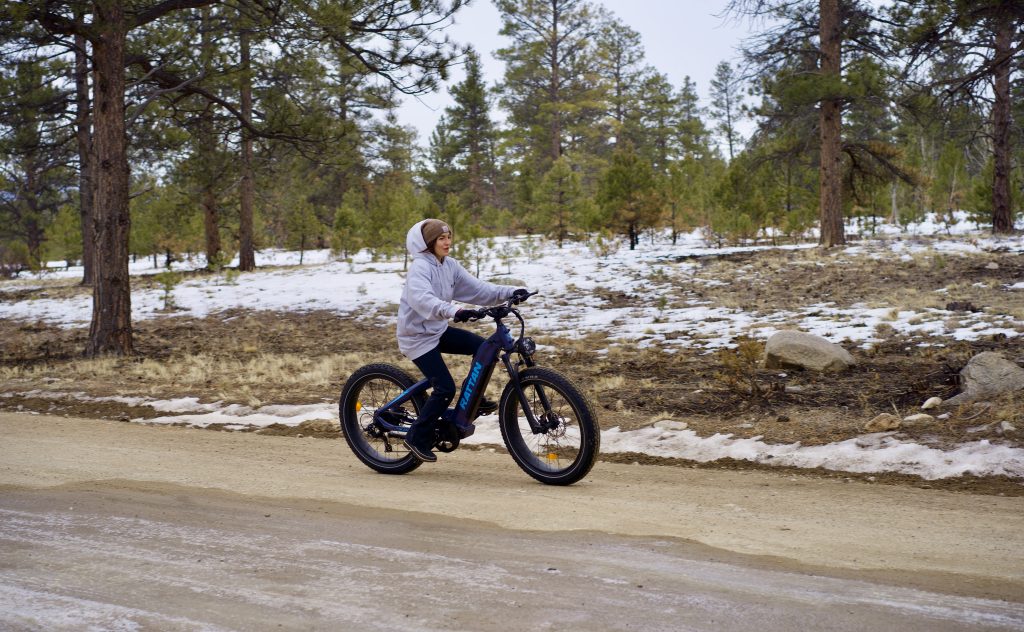
We set up camp outside Salida, Colorado. It was January and there was snow on most of the trails. I worried about how the Sequoia would handle the snow and ice, but I’m happy to report that I was pleasantly surprised!
I’ve tested it in the snow, mud on 4×4 trails, and off-road cruising over rock gardens and roots. Not only does this fat tire bike do exactly what it was made to do, but the battery held a charge throughout our entire weekend in subfreezing weather!
Despite it being heavy and a bit large for me, I felt comfortable handling it. The suspension does a great job of dampening hits and trail chatter so I always felt confident and in control. My husband, standing at 5’9”, felt even better on the Sequoia than I did.
Pedal Assist
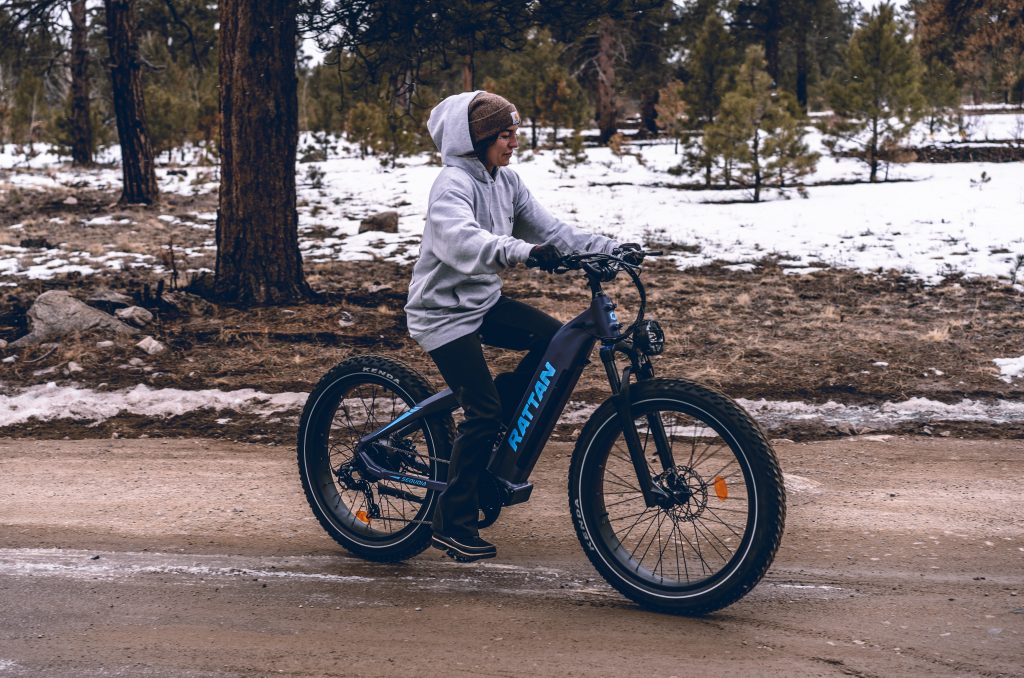
Understanding how to dial in the settings took a bit of time, but once you figure it out, shifting through the settings using the button panel on the left handlebar while riding is user-friendly and intuitive.
There are 3 modes: Pedal Only, Pedal Assist, and Throttle Only. The first one and the last one are pretty self-explanatory.
The 5-level Pedal Assist makes it so that you hardly have to work at all, but have control over how fast you go and how quickly or incrementally you accelerate. This is my favorite mode to ride in.
The torque sensor is precise and sensitive and I enjoyed the immediate feedback that the motor provides. In Pedal Assist mode, the Sequoia reacts just as you’ve learned to expect from riding any traditional bike. The harder you pedal, the more power the torque sensor sends to the motor. The acceleration and deceleration respond instantaneously to the cadence of your pedaling, whether you’re kicking it up a notch or slowing down your rotations.
It’s so responsive that you don’t even have time for your legs to get tired when you start up a hill or on a rugged patch of trail.
You can cruise in chill mode and, as soon as you start pedaling hard, Pedal Assist gives you the extra push to accelerate and get up to speed. If you push the Pedal Assist to level 5, be ready as you’ll be flying in the blink of an eye.
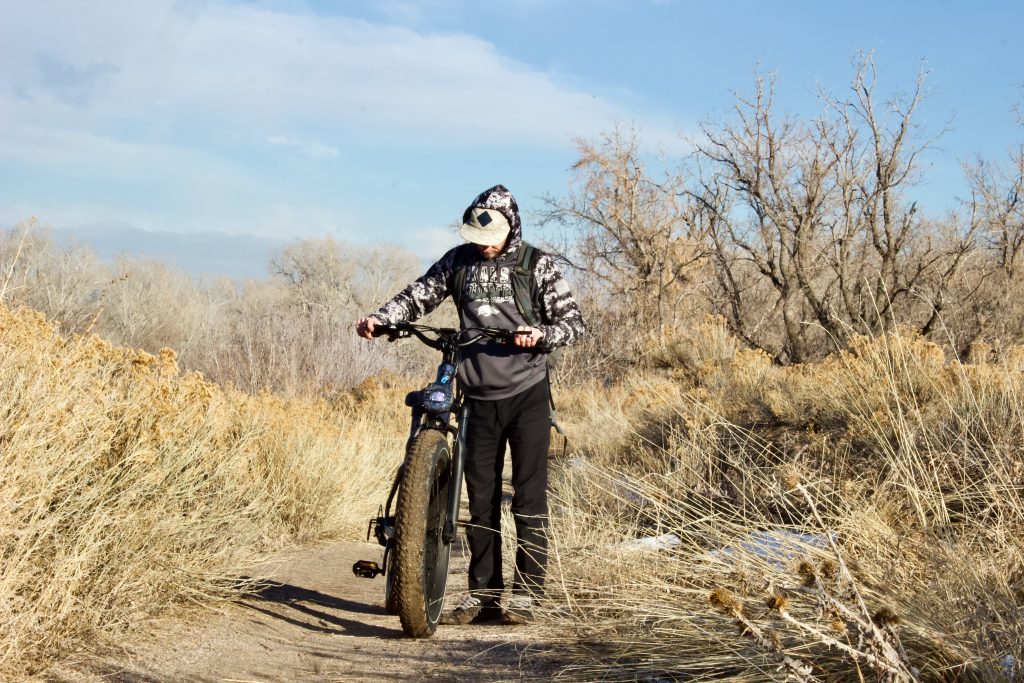
On the trail, I maxed out at about 25mph. The bike likely would’ve gone faster, but I wasn’t about to test it. Rattan claims that the Sequoia has a top speed of 28mph.
The responsiveness of the pedal assist makes the Sequoia intuitive to ride and adds to the argument for bringing one overlanding.
I’ve been on plenty of camping and overlanding trips where friends have towed along dirt bikes. While I’d love to hit the trail on one, there’s a pretty sharp learning curve. However, I’d dare to say that if you can ride a bike, you can ride an e-bike.
Should You Bring One Overlanding?
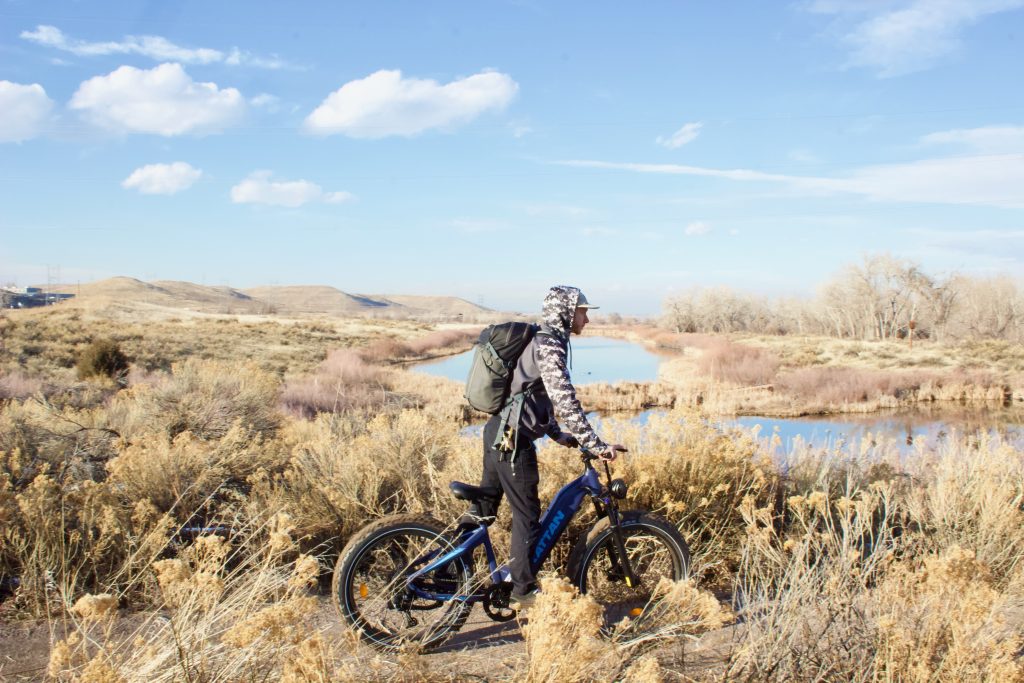
Bringing the Rattan Sequoia overlanding is a game changer. We parked the Taco and the Runner to set up camp and didn’t have to move either vehicle again until we were ready to pack up at the end of the weekend.
The e-bike allowed us a convenient option to get around the “campgrounds”. During this particular trip, we weren’t in established campgrounds, but on BLM land and in national forest — where the majority of overlanding trips take place. There was a huge trail network and other potential campsites to scope out for future trips. We were able to explore much further than we ever would’ve been able (or motivated) to on foot in just one weekend.
I took the e-bike to one of my favorite hiking trails that’s six miles long. Typically, we have to pack up a vehicle to get to the trailhead from camp or walk, which adds another couple of miles on top of the actual hike! However, zipping over on an e-bike was a much better option.
Above all, it felt good to know that we had a backup mode of transportation that wasn’t gas-powered.
You never know what you’ll encounter on an overlanding trip. Redundancy and preparation are always the keys to safe, successful adventures. That redundancy is something I’ve often felt missing when I hit the trail alone with just my Tacoma. Knowing we could rely on the e-bike as an alternate mode of transportation in case of any unforeseen circumstance be it running out of gas or an injury on the trail offered a nice peace of mind.
Furthermore, it offers a more “carbon-footprint-friendly” mode of transportation than 4×4 rigs. Although this can feel like a moot point when you’re hauling it out there in a Tacoma that averages nothing much more impressive than about 15 MPG, supplementing the trip with a more sustainable mode of transport does leave my conscience feeling a little lighter.
Final Thoughts
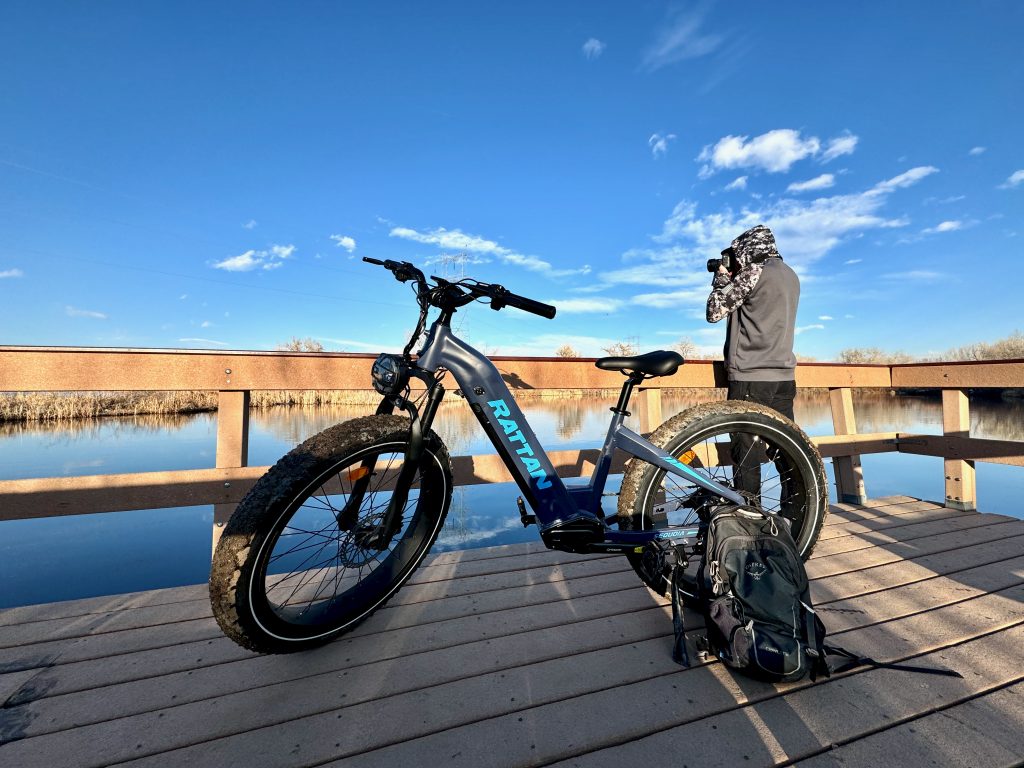
I’m glad I didn’t let my skepticism get the best of me. I never would have thought I’d enjoy bringing an e-bike along on an overlanding trip, but from now on it’ll be a staple piece of gear. The freedom to get around and explore with more ease makes dealing with the extra weight in your truck worth it and it’s much easier to travel with than a quad or dirt bike.
It’s a ton of fun to ride and with its small frame and long range, you can get away to places you can’t reach in a vehicle or on foot. With little to no learning curve, an e-bike makes a fun toy for everyone at camp to enjoy.
I 10/10 recommend you suspend your biases and pack an e-bike along on your next overlanding trip. I bet it won’t be the last time you do.



I’ve been messing with one myself recently. It’s a fun toy for sure, especially when you just hammer the throttle on max power haha. I think I’ll stick to my neighborhood, but I can definitely see how this would make extended travel easier and areas more accessible. Great for moving around camp or exploring a base camp. We typically like to wheel a little harder, so it would be tougher to justify. Nonetheless. I used to be whatever about e-bikes. Now they’re growing on me!